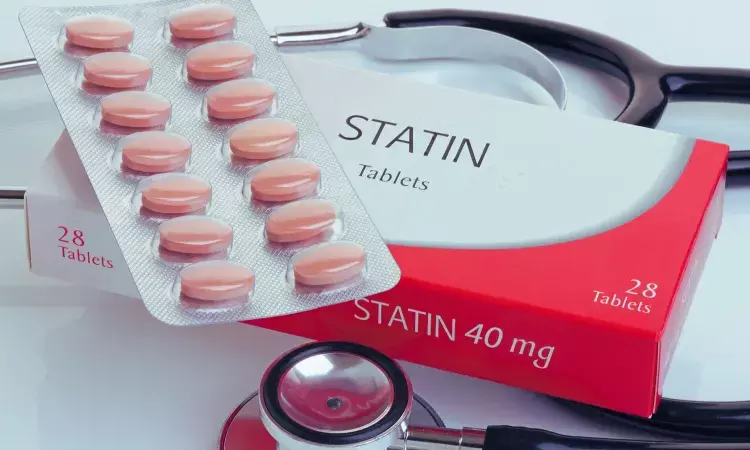- Home
- Medical news & Guidelines
- Anesthesiology
- Cardiology and CTVS
- Critical Care
- Dentistry
- Dermatology
- Diabetes and Endocrinology
- ENT
- Gastroenterology
- Medicine
- Nephrology
- Neurology
- Obstretics-Gynaecology
- Oncology
- Ophthalmology
- Orthopaedics
- Pediatrics-Neonatology
- Psychiatry
- Pulmonology
- Radiology
- Surgery
- Urology
- Laboratory Medicine
- Diet
- Nursing
- Paramedical
- Physiotherapy
- Health news
- Fact Check
- Bone Health Fact Check
- Brain Health Fact Check
- Cancer Related Fact Check
- Child Care Fact Check
- Dental and oral health fact check
- Diabetes and metabolic health fact check
- Diet and Nutrition Fact Check
- Eye and ENT Care Fact Check
- Fitness fact check
- Gut health fact check
- Heart health fact check
- Kidney health fact check
- Medical education fact check
- Men's health fact check
- Respiratory fact check
- Skin and hair care fact check
- Vaccine and Immunization fact check
- Women's health fact check
- AYUSH
- State News
- Andaman and Nicobar Islands
- Andhra Pradesh
- Arunachal Pradesh
- Assam
- Bihar
- Chandigarh
- Chattisgarh
- Dadra and Nagar Haveli
- Daman and Diu
- Delhi
- Goa
- Gujarat
- Haryana
- Himachal Pradesh
- Jammu & Kashmir
- Jharkhand
- Karnataka
- Kerala
- Ladakh
- Lakshadweep
- Madhya Pradesh
- Maharashtra
- Manipur
- Meghalaya
- Mizoram
- Nagaland
- Odisha
- Puducherry
- Punjab
- Rajasthan
- Sikkim
- Tamil Nadu
- Telangana
- Tripura
- Uttar Pradesh
- Uttrakhand
- West Bengal
- Medical Education
- Industry
Statins safe in patients with ICH, may prevent another ischemic stroke

People who have had a stroke called an intracerebral hemorrhage who take cholesterol-lowering drugs called statins may have a lower risk of having another stroke, especially ischemic stroke, compared to people who also had an intracerebral hemorrhage but were not taking statins, according to a new study published in the August 30, 2023, online issue of Neurology®, the medical journal of the American Academy of Neurology.
Intracerebral hemorrhage is caused by bleeding in the brain. Ischemic stroke is caused by a blockage of blood flow to the brain and is the most common type of stroke.
“Previous research has had mixed results on the risk of stroke in people who are taking statins and have already had a bleeding stroke, so we evaluated this further,” said study author David Gaist, MD, PhD, of the University of Southern Denmark in Odense and a member of the American Academy of Neurology. “We looked at whether use of statins after a bleeding stroke is associated with the risk of any additional stroke, including both those caused by bleeding and by blood clots. We found that those who used statins had a lower risk of stroke, notably ischemic stroke, while there was no change in the risk of bleeding stroke.”
For the study, researchers looked at health records in Denmark and identified 15,151 people who had a first bleeding stroke.
People were followed from 30 days after their first bleeding stroke until the first occurrence of another stroke, death, or the end of follow-up, which on average lasted 3.3 years. Researchers used prescription data to determine information on statin use.
Researchers then compared 1,959 people who had another stroke to 7,400 people who did not have another stroke who were similar in age, sex and other factors. Of those who had another stroke, 757 people, or 39%, took statins compared to 3,044 people, or 41%, of those who did not have a second stroke.
After adjusting for factors like high blood pressure, diabetes and alcohol use, statin use was associated with a 12% lower risk of another stroke.
Then they compared 1,073 people who had an ischemic stroke to 4,035 people who did not have another stroke. Of those who had an ischemic stroke, 427 people, or 40%, took statins compared to 1687 people, or 42%, of those who did not have another stroke.
After adjusting for similar factors, statin use was associated with a 21% lower risk of an ischemic stroke after the initial bleeding stroke.
They also compared 984 people who had another bleeding stroke to 3,755 people who did not have another stroke. Of those who had a recurrent bleeding stroke, 385 people, or 39%, took statins compared to 1,532 people, or 41%, of those who did not have another stroke.
After adjustments, researchers did not find a link between statin use and recurrent bleeding stroke.
“The results of our study are good news for people taking statins who have had a bleeding stroke,” Gaist added. “While we did find a lower risk of having another stroke, it is important to note that when looking at the data more closely, that lower risk was for ischemic stroke. Still, we found no increased risk for bleeding stroke. More studies are needed to confirm our findings.”
Dr Kamal Kant Kohli-MBBS, DTCD- a chest specialist with more than 30 years of practice and a flair for writing clinical articles, Dr Kamal Kant Kohli joined Medical Dialogues as a Chief Editor of Medical News. Besides writing articles, as an editor, he proofreads and verifies all the medical content published on Medical Dialogues including those coming from journals, studies,medical conferences,guidelines etc. Email: drkohli@medicaldialogues.in. Contact no. 011-43720751


